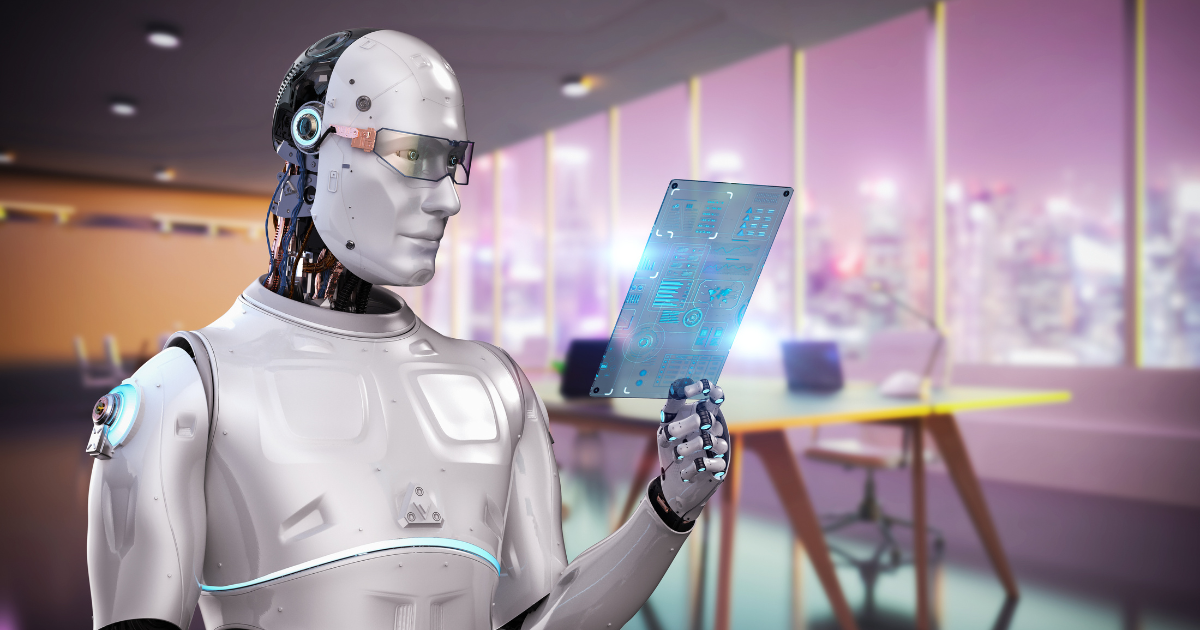AI in 2023 - Everything You Need to Know
Artificial Intelligence (AI) has taken center stage in 2023, proving to be a fleeting trend and a significant shaper of our modern world. Its remarkable influence is increasingly pervasive, extending far beyond tech circles and manifesting itself in various aspects of our everyday lives. From autonomous vehicles navigating our city streets to intelligent assistants making our homes more efficient, AI has become an integral part of our world. Understanding AI, its development, and its implications has never been more vital than it is today. This is due to AI's transformative potential for diverse sectors, including healthcare, education, finance, and more.
AI’s Key Concepts and Technologies
The story of AI's evolution until 2023 is nothing short of a technological odyssey. Starting as a concept in the mid-20th century, AI has become a cornerstone of our technical infrastructure. The current AI technologies and recent advancements fundamentally alter how we interact with the world. Among the key concepts in AI are machine learning, deep learning, natural language processing, and computer vision - each contributing unique capabilities to the AI arsenal. Machine learning algorithms have become more sophisticated, enabling computers to learn from data without explicit programming. Deep learning, a subset of machine learning, uses artificial neural networks to mimic human decision-making and learning abilities.
Meanwhile, natural language processing has dramatically improved, enabling AI to understand, interpret, and generate human language in a remarkably human-like way. AI systems can accurately identify and analyze visual data in computer vision, leading to facial recognition and automated video analysis applications. One of the notable advancements in 2023 is the rise of transformer models in AI, which have revolutionized language understanding and generation tasks. With these technologies, AI has not only matured but is also opening new frontiers of possibilities, shaping a future that once belonged only in the realm of science fiction.
AI Applications in 2023
In 2023, AI has cemented itself as a transformative force across various sectors. In healthcare, AI-driven solutions are aiding in everything from diagnostics to personalized medicine, enhancing the speed and accuracy of services while potentially revolutionizing patient care. In education, AI tools are personalizing learning experiences and streamlining administrative tasks. The finance sector has also seen a surge in AI usage, with advanced algorithms for risk assessment, fraud detection, and offering personalized financial advice. In transportation, we're witnessing the steady rise of autonomous vehicles, thanks to sophisticated AI systems. The retail sector, meanwhile, is leveraging AI for predictive analytics, personalized shopping experiences, and efficient inventory management. Even in entertainment, AI makes waves by developing sophisticated recommendation algorithms and AI-generated content. In each of these sectors, AI applications are solving complex problems and reimagining how these industries function, pointing to a future where AI is deeply interwoven into the fabric of society.
Ethical and Societal Implications of AI
As AI technology advances, it raises critical ethical and societal questions. On the moral front, concerns range from privacy issues to bias in AI algorithms. The collection and usage of massive amounts of data, a prerequisite for many AI applications, potentially jeopardize user privacy. Additionally, there's an ongoing concern about AI systems unintentionally perpetuating societal biases in the data they're trained on, leading to unfair outcomes.
The question of job displacement due to AI automation remains pertinent on a broader societal level. The fear of widespread job loss is tangible despite AI creating new opportunities. Lastly, the regulatory environment for AI is in a state of flux. Policymakers worldwide grapple with formulating regulations protecting individual rights and preventing misuse while encouraging innovation. AI's ethical dilemmas, societal impacts, and evolving rules reflect its complex role in 2023, underlining the necessity for ongoing dialogue, vigilant monitoring, and proactive governance as we shape our AI-driven future.
AI Beyond 2023
Many promising AI trends and predictions emerge as we gaze into the future beyond 2023. AI's anticipated to continue to evolve towards even greater levels of sophistication, with advancements in areas like self-supervised learning, AI model explainability, and advanced AI-driven automation. Moreover, we foresee more widespread adoption of AI across sectors, transforming industries from manufacturing to hospitality. Ethical AI and regulation will likely become even more prominent as societies grapple with balancing innovation and moral concerns. As we navigate this exciting frontier, it's clear that AI's journey is far from over, and the potential it holds for our future is immensely promising.
We must equip ourselves with the proper knowledge and guidance to embrace a new future. If you have more questions or are intrigued about how AI can shape your business or personal needs, don't hesitate to get in touch. Our IT experts at Intuitive Networks are ready to provide more clarity and tailored advice. AI is no longer just a buzzword; it's a tool with real, tangible impact. Discover how you can be part of this exciting frontier.
How Will a Cyber Attack Impact Your Business?
Today, businesses heavily rely on technology, digital platforms, networks, and data storage to streamline operations and enhance productivity daily. However, this increased reliance exposes companies to growing cyber threats and attacks. Hackers and cybercriminals are becoming increasingly sophisticated, using advanced techniques to exploit computer systems, networks, and software vulnerabilities. These attacks range from data breaches and ransomware infections to phishing scams and denial-of-service (DoS) attacks.
Financial Impact of Cyber Attacks
When a cyber-attack occurs, the financial ramifications can be significant in direct and indirect costs.
Direct Costs One of the direct costs that businesses may encounter is the payment of ransoms. In ransomware attacks, organizations may be forced to pay a ransom to regain access to their encrypted data or systems. These payments can be substantial and can drain financial resources. Another direct cost is related to system recovery. After an attack, businesses often need to invest in restoring and repairing their compromised systems, networks, and infrastructure. This can involve hiring specialized IT professionals, purchasing new hardware or software, and conducting forensic investigations to identify the extent of the breach. These expenses can add up quickly and strain the company's finances.
Indirect Costs Beyond direct expenses, cyber attacks can also result in significant indirect costs. One of the most impactful indirect costs is the loss of business. When customer data is compromised, clients may lose trust in the company and turn to competitors. This loss of customer confidence can lead to a decline in revenue and market share, potentially causing long-term damage. Businesses may also face legal fees and fines. Data breaches often trigger legal obligations, such as notifying affected individuals and regulatory bodies and potentially meeting legal action from involved parties. The costs associated with legal representation and potential fines can be substantial, adding another layer of financial strain.
Considering the direct and indirect financial impacts of cyber attacks, it’s clear that investing in robust cybersecurity measures is necessary to protect sensitive data and safeguard the organization's economic well-being.
Operational Impact of Cyber Attacks
One of the immediate operational impacts is the disruption of operations. This can manifest as significant downtime, where essential systems and networks become inaccessible or unusable. This can bring productivity to a halt, leading to delays in delivering products or services and potentially causing financial losses. Cyber attacks can also disrupt the supply chain. When a business relies on external partners or vendors, any compromise within the supply chain can delay receiving critical resources or components.
Cyber attacks can cause damage to the infrastructure of a company. Systems that have been compromised may require extensive repairs or replacements, resulting in additional costs and time-consuming efforts. In some cases, the attack may even destroy physical assets, including servers or other hardware, further hindering operations.
The impact of a cyber attack is not limited to the technological aspects; it also affects the employees within the organization. Following an attack, employees often face an increased workload as they work to restore systems, recover data, and implement enhanced security measures. The added pressure can lead to stress and burnout, impacting employees' overall well-being and productivity.
Business Reputation at Stake
The reputational impact of a cyber attack can be profound and long-lasting, affecting a business's standing in the eyes of its customers, stakeholders, and the public. When news of a cyber attack spreads, it can create a sense of unease and mistrust among existing and potential customers. The breach of sensitive data or compromised security can lead to negative perceptions about the company's ability to protect the privacy and security of its customers' information.
Legal and Regulatory Impact
Legal liabilities stemming from cyber attacks can result in lawsuits filed by affected individuals or entities seeking compensation for damages. The costs associated with legal defense and potential settlements can be substantial, straining the financial resources of the targeted business.
In the aftermath of a cyber attack, businesses may face Regulatory penalties for failing to protect sensitive data or adequately comply with industry standards.
Protect Your Business From Cyber Attacks
Understanding the impacts of a cyber attack is crucial for businesses of all sizes. Investing in security solutions, implementing preventive measures, and staying informed are critical steps in safeguarding sensitive data and maintaining business security. By proactively addressing cybersecurity concerns, businesses can protect their assets, strengthen customer trust, and ensure long-term resilience in the face of ever-evolving cyber threats.
Don't wait for an attack to happen – let our experts assess your security needs and provide tailored solutions to safeguard your valuable data. Schedule your FREE consultation with Intuitive Networks today and stay one step ahead of the hackers.


